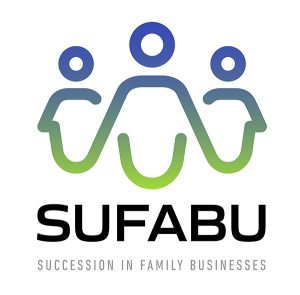“Succession in Family Businesses | Training Model for Sustainable Succession Process in
Family Businesses”
Family businesses play a crucial role in sustainable economic development, job creation, regional development and competitiveness of European countries. Unlike large international companies and corporate enterprises, family businesses have the valuable ability to overcome times of recession and economic stagnation which makes them a stable backbone of the economy. In addition, their base is rooted in the country, thus ensuring to keep economic profit and taxes within a state. The goal of having healthy and prosperous small and medium-sized family businesses is therefore favorable for all (not only) European states.
However, family businesses face several specific obstacles that make it more difficult for them to survive in a long-term perspective. For example, they face the challenge of transferring the company to the next generation. For this to be possible, a complex step-by-step plan needs to be prepared. The EESC estimates that 450,000 European family businesses face this challenge every year and about 150,000 of them were closed down as a result of a failed transfer process. In other words, every year some 600,000 jobs cease to exist due to the unsuccessful succession process.
The main objectives of the SUFABU project are to help family entrepreneurs manage the succession process successfully and to raise awareness of the need to include family businesses in state legislation. The aim of the project is to create an innovative digital training system that will provide family entrepreneurs with knowledge and skills that will help them in planning and coping with intergenerational exchange.
The SUFABU project is funded by the Erasmus+ program under Grant Agreement 2019-1-CZ01-KA204-061268.
